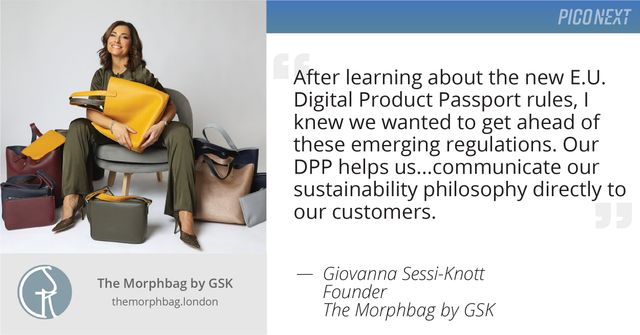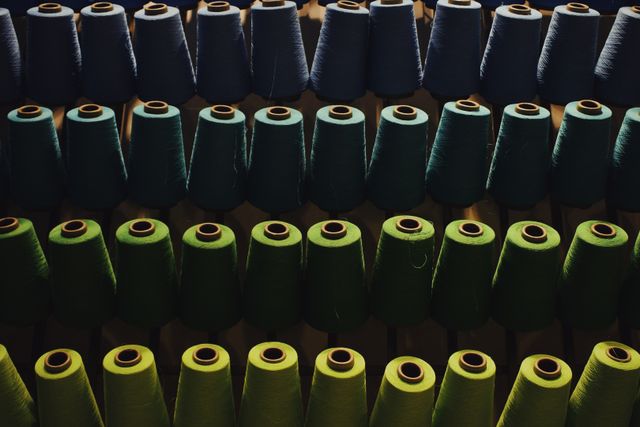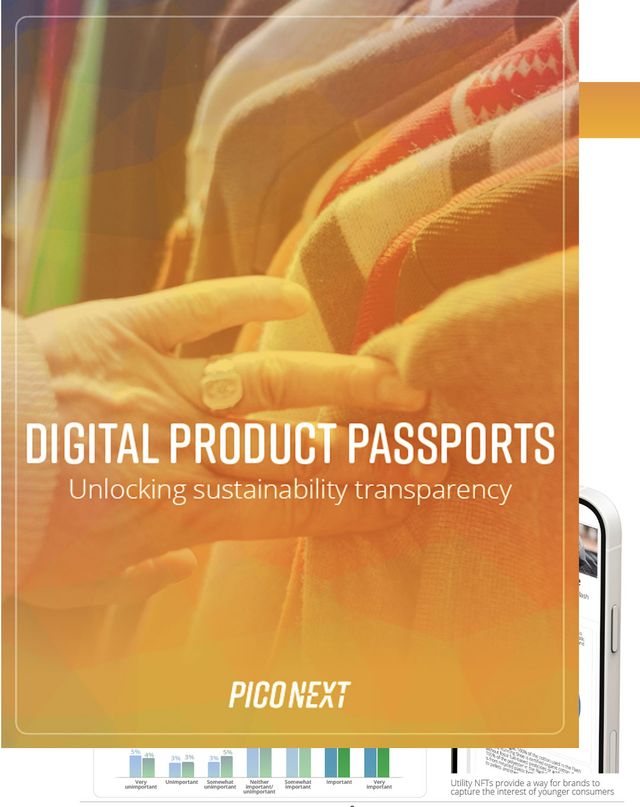Today, we're excited to announce new customer momentum in Digital Product Passports, with a collection of four fashion retailers across the globe adopting the technology to provide increased transparency into their sustainability efforts. The boutique clothing brands are using a combination of blockchain- and cloud-based Digital Product Passports to detail environmental and social attributes of their products, avoiding “greenwashing” and backing their sustainability programmes with data.
Digital Product Passports drive transparency in sustainability
Introduced in March 2022 by the European Union, Digital Product Passport (DPP) regulations require brands to provide sustainability data to customers, including reporting on attributes such as materials sourcing, carbon footprint, recyclability and more. Typically accessed via a QR code or a Web link, Digital Product Passports powered by PicoNext allow customers to easily view this environmental information by category, and enable companies to create a brand experience around the data while improving transparency and trust.
In fact, according to recent PicoNext sustainability research of 1000+ consumers in Europe and the U.S., 73% of customers indicate that access to this type of detailed sustainability information helps them have more trust in a brand, with 67% also saying that they would be more likely to purchase a product with this increased data.
Learn more about Digital Product Passports
Fashion brands launching Digital Product Passports
The four fashion brands launching DPPs today – including Simple Chic in Sydney, Australia; Bon+Berg in Dublin, Ireland; The Morphbag in London, England; and Tammam, also in London, England – are using their Digital Product Passports to show progress in sustainability programs and drive greater trust with their environmentally focused customers.
Simple Chic
Based in Sydney, Australia, Simple Chic is an on-demand and circular clothing e-commerce platform. It features made-to-order women’s clothing in "100% natural fabrics" by local, independent, women-led designers and makers and provides circular clothing services that are easily accessed during and post-purchase of clothing. From made-to-order designs, repairs, alterations, upcycling, resale and recycling to extend the life of clothing and to support the planet, the company’s vision is to create a more inclusive, equitable & regenerative world of clothing where all women and our planet flourish.
Custom-branded DPP. Simple Chic implemented PicoNext Enterprise APIs into a custom website in order to render its DPP information and make it easily available for customers through a QR Code. This way, Simple Chic could retain full control over the brand and customer experience of its DPP, ensuring compliance with brand and sustainability guidelines.
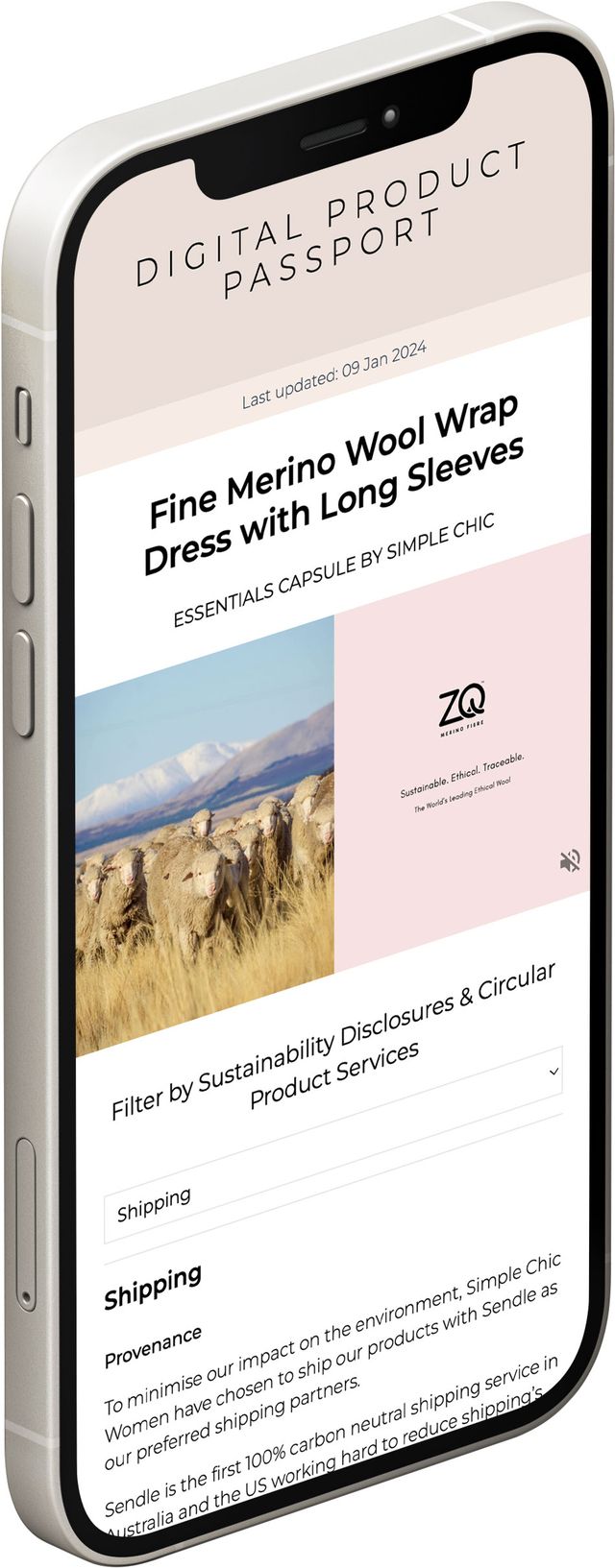
Learn more about Simple Chic's Digital Product Passport
- View Simple Chic’s Digital Product Passport
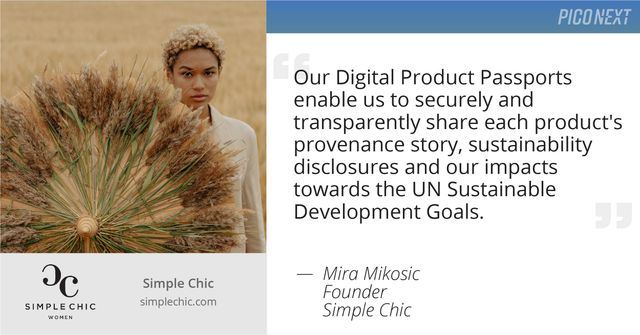
Tammam
Tammam is a couture fashion studio in London, England with a long-term commitment to environmental and social responsibility. Its recent collaboration with the European Space Agency (ESA) features stunning prints of landscapes affected by climate change through satellite imagery on its high-end scarves.
Product transparency with blockchain DPP. The brand ensures its designs use "cruelty-free materials", its sourcing is from sustainable supply chains, and its production is in accordance with ethical principles. Tammam’s blockchain-based DPP traces the "fiber-to-finish" philosophy of its sourcing and production process for its new ESA scarves collection.

Learn more about Tammam’s Digital Product Passport
- View Tammam’s Digital Product Passport
- Read more about Tammam’s Digital Product Passport using PicoNext
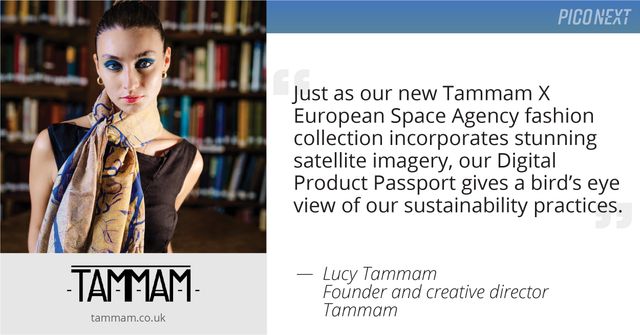
Bon+Berg
Based in Dublin, Ireland, Bon+Berg focuses on making sustainable women’s undergarments. The brand’s bras and bottoms incorporate sustainability at every point in the value chain, and the company encourages customers to embrace slow fashion and avoid greenwashing.
Turnkey blockchain DPP using PicoNext. Bon+Berg’s Digital Product Passport uses PicoNext and the environmentally friendly Polygon blockchain to immutably secure its sustainability data on a public ledger – allowing data events to be traced, and ensuring they can persist indefinitely, regardless of vendor status. To accelerate speed-to-market, the brand also used a pre-formatted DPP viewer from PicoNext to render sustainability data from the public ledger alongside its own branding.

Learn more about Bon+Berg's Digital Product Passport
- View Bon+Berg’s Digital Product Passport
- Read more about Bon+Berg’s Digital Product Passport using PicoNext
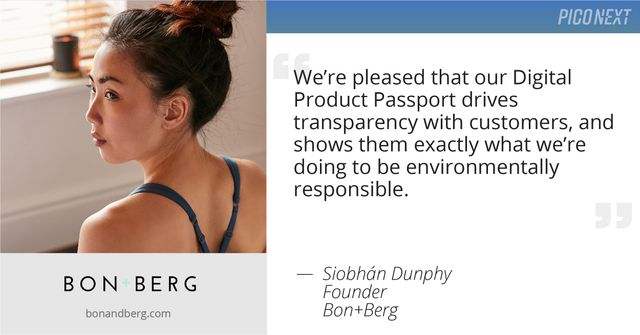
The Morphbag by GSK
The Morphbag by GSK, based in London, England, produces vegan-leather totes, cross-body handbags and clutches for busy and stylish women. The company’s Digital Product Passport highlights the vegan certifications it has received for its products, as well as details of its factory audits and social impact initiatives – including planting trees in the Amazon rainforest for every handbag set sold, and collaborating with UK charity Smartworks to prepare women for workforce reintegration after a career break.
Cloud-based, off-chain DPP. The Morphbag uses PicoNext to produce a cloud-based DPP in order to flexibly update sustainability attributes in its passport as its supply chain strategy evolves, with the option to transition to a blockchain-based solution in the future. A preformatted, web-based DPP viewer renders and displays sustainability data from the cloud, without customers needing to download or install any additional apps.
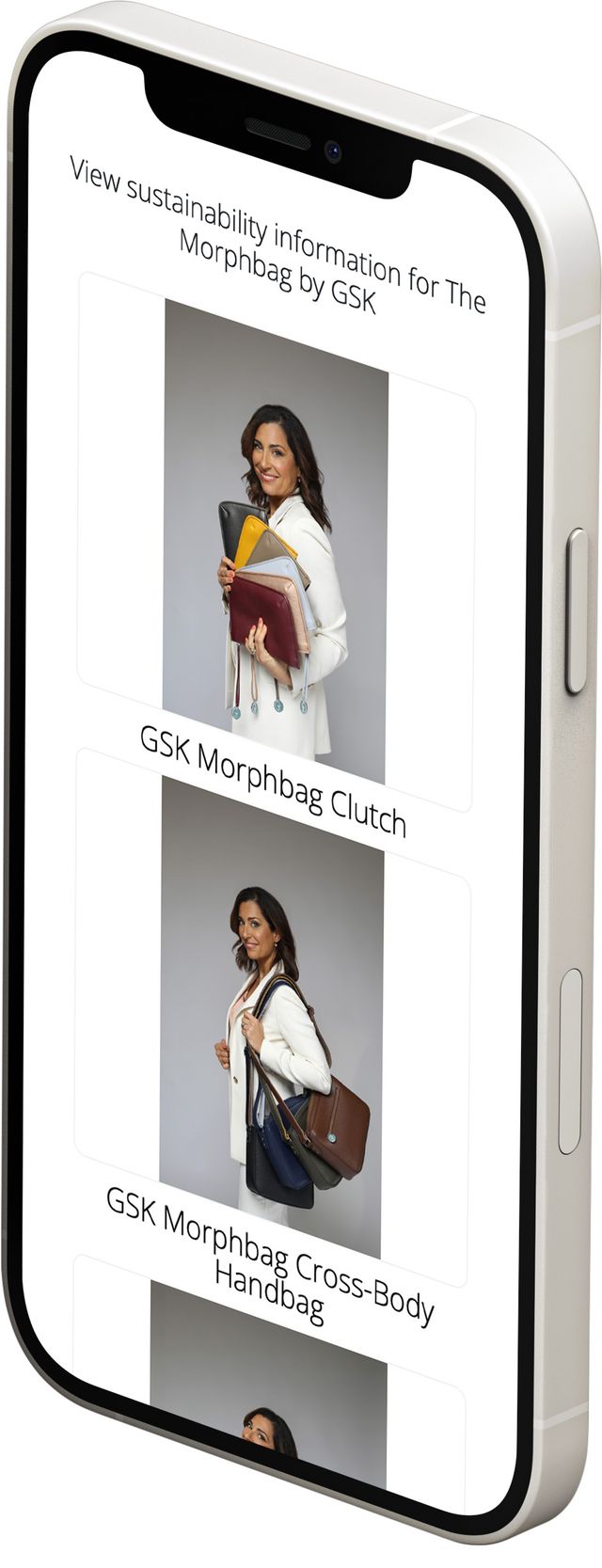
Learn more about The Morphbag’s Digital Product Passport
- View The Morphbag’s Digital Product Passport
- Read more about The Morphbag’s Digital Product Passport using PicoNext
